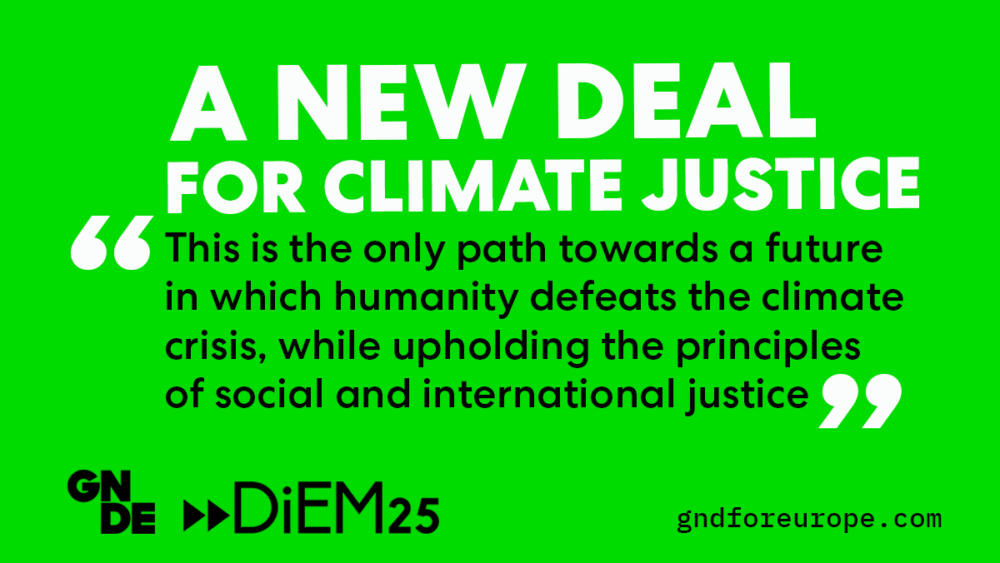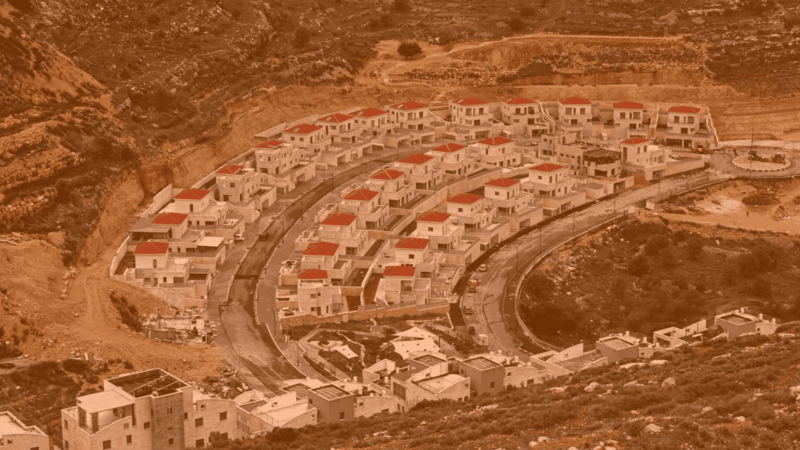The only way we can avoid the most disastrous consequences of climate breakdown is by organising at the global level.
Neither individual, nor single state action will make a dent in the current crisis. We must be at our loudest about this now, when international solidarity falters in view of the COVID-19 pandemic. We must strive to embolden truly global action.
In this light, the Green New Deal for Europe (GNDE) can be the vanguard in this fight, but not because of some inherent European superiority. In fact, it is the opposite – European Union states have cumulatively contributed 17% of total GHG emissions from 1850 to 2012 according to a recent study, second only to the USA. The principle of common but differentiated responsibility remains central to international environmental response, but it is not fully implemented.
Instead, the EU has been widely accused of perpetuating green colonialism in its environmental policies. More than ignoring the history of resource extraction across the Global South, the EU has been repeating it. The new free trade agreement with Mercosur is just another example in a long line of policies utilised by the EU to evade its responsibilities.
How can the Green New Deal for Europe push things forward?
Fundamentally, the GNDE aims to bring about a reorientation of priorities in production. However, it also seeks to promote social justice, responsibility and oversight by establishing Green Public Works (GPW), an investment programme powered by the European Investment Bank (EIB). The GPW will ensure massive public investments in green infrastructure, housing and community projects, among others. Broadly aimed at re-structuring the entire economy of the EU, providing decent work, divesting from fossil fuels and more, the GPW will be funded via Green Investment Bonds issued by the EIB.
What about the international perspective?
First, the GNDE will pursue the inclusion of ecocide as a crime against humanity in international criminal law to recognise the existential risks posed by the climate crisis. Secondly, it will establish the Environmental Justice Commission (EJC) to follow through on the amendment. This body will ensure that the Green Public Works will not repeat the mistakes of the past and confront European colonial legacy.
Internally, empowering the EJC to monitor the implementation of the Green New Deal and investigate any emerging issues is crucial to the success of the entire project. EU-wide transparent oversight that is laser focused on addressing will resolve and prevent any unforeseen externalities. Moreover, in championing internal accountability, the EU will finally back up its claims of being a leading voice in the struggle against climate change.
This, as a result, will be of immense importance on the international stage. The Green New Deal and the Environmental Justice Commission, acting together, will ensure that Europe reconciles with its historical role in this crisis, giving it legitimacy at the global level.
Externally, the EU will be able to push for international reform from a position of a credible actor. This will improve the EU’s standing, allowing it to push for meaningful international reform in a variety of areas, building solidarity with other state and non-state actors. The recognition of ecocide is only one such reform. Others include, for instance, a fully-fledged legal definition of climate migrants and refugees at the international level, allowing asylum and other rights to those fleeing their homes due to climate change.
The international system is based on a longstanding post-war neoliberal consensus that is currently undergoing significant changes.
The waning of Western power that erected it and the strain put on the system by the COVID-19 pandemic are making sure of that. With the Green New Deal and the EJC, the EU has a chance of being on the frontlines of these changes. It can direct the system to reforms that will benefit the climate, while prioritising social justice.
Right now is the moment to act – it is clear from my own research on the international system during the interwar period that times like these provide unique opportunities to shape the future of global governance. Even an EU that embraces the Green New Deal remains only one actor among many states that espouse protectionist nationalism, a slew of multinational corporations driven by profit above all and publics that remain passive or sceptical. It would be impossible for the EU to persuade the IMF or the World Bank to cancel the debts of poorer states, for example. This is without even looking at restructuring these institutions in ways that would ensure they work towards reducing global inequality, instead of maintaining it.
Fortunately, the European Union will not be alone.
Climate-conscious grassroots movements all over the world are springing into action in response to the COVID-19 crisis as states’ inability to protect their populations is exposed. At the transnational level, the recent launch of the Progressive International dares us to dream of a unified progressive movement. Together, we can exert significant pressure on international institutions by uniting grassroots and national groups to act in unison.
With allies at the local, national, and international levels, an EU that embraces the Green New Deal for Europe can reform not only itself, but the world at large.
- Renegotiate international criminal law to recognise climate damage that amounts to ecocide is a ‘crime against humanity’.
- Establish the EJC to monitor implementation of the Green New Deal for Europe along the dimensions of international, intersectional and intergenerational justice.
- Empower the EJC to investigate issues pertaining to environmental justice and propose recommendations to legislative bodies both inside Europe and around the world to address them.
- The EJC should investigate the international dimension of environmental justice, ranging from trade relations to the rules of the game for transnational corporations.
- The EJC should pay particular attention to the challenge of intergenerational justice — both looking at addressing past injustices and promoting tools to ensure that future generations inherit a habitable world.
This is the only path forward towards a future in which humanity defeats the climate crisis, while upholding the principles of social and international justice.
Dr. Vsevolod Kritskiy is a Swiss National Science Foundation postdoctoral researcher at the University of Amsterdam, currently working on international communism in the 1920s. He received a PhD in International History and an MA in International Affairs from the Graduate Institute of International and Development Studies. Aside from his academic experiences, he also worked in non-governmental and United Nations agencies, and is currently volunteering for the Progressive International.
Do you want to be informed of DiEM25's actions? Sign up here















